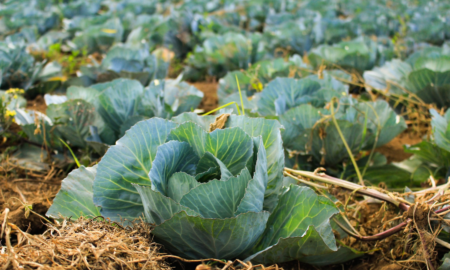- Foodtech startups are leading a movement that aims to enhance food security and transform African agriculture into a model of economic viability and sustainability.
- Nile, a business-to-business (B2B) marketplace seeks to modernise agricultural trade by enabling direct connections between farmers and buyers.
- Another entity, Sand to Green, employs advanced agroforestry practices and technology to transform arid desert lands into fertile agricultural zones.
In the face of a future where 140 million people in Africa confront acute food insecurity, the emergence of foodtech startups across the continent is starting a new phase in agricultural practices and food production.
Armed with innovative technologies and visionary approaches, these startups are leading a movement that aims to enhance food security and transform African agriculture into a model of economic viability and sustainability.
A trio of visionaries from Amazon, JP Morgan and Luno have established a digital insurance platform Nile, a business-to-business (B2B) marketplace that seeks to modernise agricultural trade by enabling direct connections between farmers and commercial produce buyers.
This initiative, which went live at the height of Covid-19 in 2020, not only reshapes the landscape of produce trading across southern Africa but also empowers farmers by minimizing costs, enhancing transparency, and ensuring faster, more secure payouts.
As the “largest fruit and vegetable online marketplace on the continent,” operating in 12 African countries, Nile is pioneering a digital revolution in farming and selling produce, traditionally known for its inefficiencies and high costs.
Beyond the marketplace, African foodtech startups are also reimagining food production methodologies to address the continent’s pressing challenges. Sand to Green, for instance, employs advanced agroforestry practices and technology to transform arid desert lands into fertile agricultural zones.
This approach not only combats desertification but also boosts local food production, enhances CO2 capture, and promotes biodiversity.
Similarly, Newform Foods in Cape Town is innovating within the cultivated meat sector, offering ethical protein alternatives that replicate the conditions necessary for animal cell growth outside the animal.
This method promises a sustainable, efficient, and ethical alternative to conventional meat production, with the potential to drastically reduce the environmental impact associated with farming.
Read also: UK Injects $7.7 million to Boost Zambia-Tanzania Trade Route Upgrade
Innovative spirit of African foodtech startups
Overall, Nile, Sand to Green, and Newform Foods exemplify the dynamic and innovative spirit of African foodtech startups committed to improving food security and revolutionizing agriculture in Africa.
These enterprises not only enhance the agricultural value chain through technology but also deeply invest in creating sustainable, scalable solutions that can address the unique challenges faced by the continent.
The efforts of startups Nile, Sand to Green, and Newform Foods underscore the pivotal role of foodtech in shaping the future of food systems in the continent. By leveraging technology, these enterprises are not only improving food security but are also setting new standards in sustainable food production.
Additionally, these startups are demonstrating a proactive approach used in addressing food security on the continent. Through their innovations, they are not just responding to current challenges but are also preparing for future demands in food production and distribution.
The work of these startups also highlights the critical moment at which agriculture in Africa finds itself today. Technology and innovation are leading a revolution on the continent as they confront the dual challenges of food insecurity and the need for sustainable practices.
Startups Nile, Sand to Green, and Newform Foods are part of a larger ecosystem of African foodtech startups dedicated to revolutionizing the agricultural industry. These entities are not just addressing the immediate challenges of food production and distribution; they are also redefining the very essence of agriculture in Africa, making it more resilient, efficient, and sustainable for future generations.
Their interventions are a testament to the power of technology in bridging traditional gaps in the agricultural value chain. By integrating digital platforms, advanced bioprocessing technologies, and sustainable agricultural practices, they are laying the foundation for a food-secure Africa that can withstand the vicissitudes of climate change and population growth.
Role of foodtech startups
This not only ensures the continent’s economic viability but also strengthens its position in the global food market. Moreover, the collaborative nature of these innovations highlights the importance of partnerships between technology experts, farmers, governments, and international bodies.
These synergies enable the discovery and implementation of scalable solutions to food insecurity. The success of these startups serves as a beacon for other African countries, demonstrating the potential of tech-driven solutions for overcoming longstanding agricultural challenges.
Furthermore, the initiatives of these startups extend beyond mere food production; they embody a comprehensive approach to addressing the entire agricultural ecosystem. From improving supply chain logistics to ensuring sustainable farming practices and providing ethical alternatives to conventional meat production, their work is a multi-faceted endeavor towards securing Africa’s food future.
As the continent continues to grapple with the challenges of food insecurity, environmental degradation, and the need for economic diversification, the role of foodtech startups becomes increasingly critical.
Their innovative approaches not only promise to revolutionize agriculture in Africa but also offer a sustainable blueprint for the rest of the world. In this light, the work of Nile, Sand to Green, Newform Foods, and their peers is not just a series of business ventures; it is a movement towards a more sustainable, food-secure Africa.











